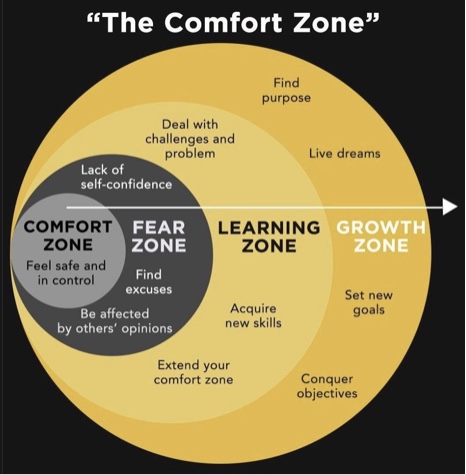You can be mildly successful by never going out of your comfort zone, never speaking up or standing out, and never really risking much. But when you don’t risk anything, you cap your upside.
The best social media influencers realize this. Many of them say provocative things to increase engagement. The greater amount of comments on their post will tell the algorithm of Facebook, Instagram, etc that this is a popular or trending topic and then shows that to more people (which, if it really is a controversial post, often leads to more engagement). It’s a self-perpetuating cycle. To gain the greatest social media success, you can’t stay small. You have to be ok with people disagreeing with you (sometimes vehemently). It’s easier, and more comfortable, to not post anything. But if you don’t say anything, it will be harder to be seen. To maximize your success in this avenue, you need to be willing to step outside your comfort zone, to speak up, to stand out, and to risk being criticized.
I really don’t like using that example because I don’t want to encourage anyone to say something they don’t believe in just to get more likes, follows, comments, recognition, etc. But I used that example because I feel like many people can understand it. If you value comfort, stay small and unrecognizable. But if you value maximum exposure, you’ll have to take the good (success) with the bad (risk of failure).

